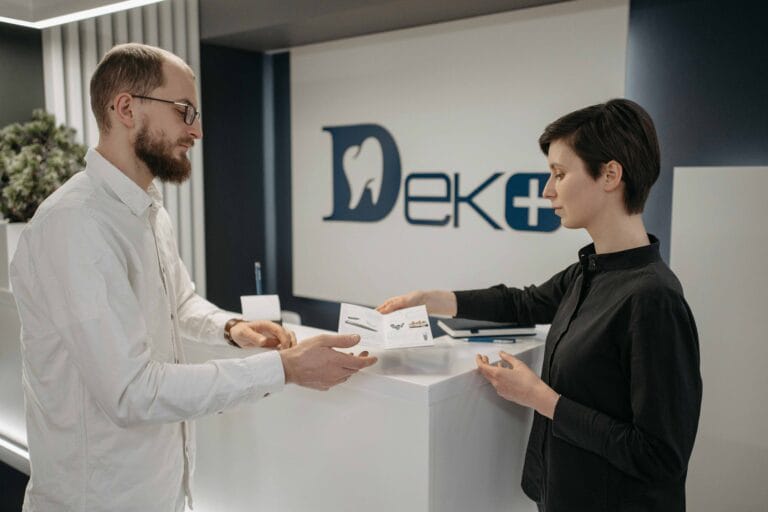Do Holistic Dentists Take Insurance

Now, if you are considering holistic dentistry, a common question you will ask yourself is this: Do holistic dentists take insurance? Natural and Whole Being the interest in natural and holistic strategies of dental care continue to rise, the question is often asked can these procedures be covered by standard dental insurance. Holistic dentistry emphasizes the health of the entire body, not just the teeth, and uses a variety of methods, including bio-compatible fillings, acupuncture and nutrition counseling. But you’re insurance: does it pay for these services?
In this guide, we’ll explore what holistic dentistry is, how it’s different from traditional dental care, and how insurance is involved when it comes to holistic services. We’ll also provide tips for finding a natural dentist that takes insurance and discuss ways to cover costs that aren’t covered by insurance.
What Is Holistic Dentistry and How Does it Benefit You
Holistic dentistry is not only a type of dental practice, but also the perspective that considers the needs of the entire body. Unlike traditional dentistry which tends to concentrate on fixing dental issues, holistic dentistry considers that the perfect approach to healing involves the utilization of natural healing, bio-compatible materials, and prevention.
Important things regarding holistic dentistry
- Bio compatible Restorations: Natural dentistry doesn’t use mercury amalgam fillings like traditional dentists; we use materials more harmonious with the body.
- Diet and Nutrition: Therapy Some holistic dentists will provide nutritional advice and sometimes take a more holistic approach to your overall well-being.
- Non-Caustic Solutions: Traditional dentists often use harsh chemicals whereas holistic doctors promote a natural approach to healing.
- Preventative Treatment: This means that they intensely promote a lifestyle practice of prevention for the betterment of your oral and bodily health.
These alternative practices have caused a lot of people to ask: does dental insurance pay for that?
Insurance and Holistic Dentists How about Insurance and Holistic Dentistry
The short answer is this: it varies. Holistic practitioners are not tied to the same regulations as traditional dentistry, so the extent of insurance coverage for holistic dentistry can be different from one provider to the next.
Why is there such variation in insurance acceptance
- Differing Coverage Norms: The standard in insurance is to have regimens for care in place for conventional approaches and trending companies set these guidelines without accounting for alternative holistic approaches. This may mean that treatments such as bio compatible fillings or nutritional counseling would not be included.
- Restricted Insurance Agreements: Many holistic practices are not members of big insurance companies therefore they might not have a contractual agreement with your insurance company.
Common Insurance Providers
- Delta Dental, Aetna and Cigna: Some holistic dentists will accept these plans, but you will want to call ahead to make sure.
- Medicare & Medicaid: These federal programs may or may not cover holistic approaches to healthcare so long as it’s not provided by a doctor who has opted out and the provider is approved to accept this type of coverage. Even then, coverage can be restricted.
Coverage for Holistic vs Traditional Dentistry
Whereas conventional dental insurance might cover routine services such as cleanings, fillings, and crowns, holistic treatments (like acupuncture for mitigating pain, or ozone therapy for treating infections) are often not covered. This is a key distinction between holistic modalities and conventional methods when it comes to insurance coverage.
How To Find A Holistic Dentist Who Takes Insurance
It’s like finding a needle in a haystack trying to find a holistic dentist that accepts your insurance. But there are some ways you can make the process more bearable.
How to Find a Holistic Dentist That Takes Insurance
- Online Directories: Various holistic dental organizations have a directory of holistic dentists who accept insurance. Look at resources such as the Holistic Dental Association or the International Academy of Oral Medicine and Toxicology (IAOMT).
- Call Your Insurance Carrier: If you are considering scheduling a visit, first call your insurance company to find out if they offer holistic services. Be direct and inquire about bio compatible fillings, holistic pain management methods, or other alternative treatments.
- Ask the Dentist: After your list of potential holistic dentists has been narrowed, call their offices and inquire about insurance. Be sure to ask what treatments are in your plan.
Knowing Your Insurance Policy Information for Holistic Dentistry
When you are planning for holistic dental services, it is always beneficial to know in detail about the insurance coverage. Important questions to ask your provider and/or the dental office:
Do my fillings pay with bio compatible materials
If offered by the dental office, are related wellness services such as acupuncture or nutritional counseling an option that I can use with my coverage?
Would I need to claim insurance on my own, or will the dental practice file a claim to my insurance?
Controlling the Cost of Treatment: Funding and Reimbursement Options.
If your dental plan does not cover all holistic dental procedures, there are ways to make care more affordable.
Patient Financing Options
- Payment Plans: A few holistic dentists will offer a plan to pay your bill over the course of months.
- Third-Party Medical/Dental Insurance: Businesses such as Care Credit are in the practice of financing healthcare and may be applicable for entire mouth dental work.
- Health Savings Accounts (HSAs) or Flexible Spending Accounts (FSAs): Your HSA provider or FSA administrator should allow funds for integrative dental care. As you would expect, you should verify with your account manager the availability of offering-specific services.
Possible Discount Rates and Elastic Rates
- Special Exceptions: Some holistic dentists offer discounts or use the sliding scale (based on income) fee schedule for patients not covered by insurance who pay cash.
- Ask about your options: Be sure to ask the dental office about these types of payment plans and whether any discounts are available for your treatment plan.
Questions and Answers About Insurance and Holistic Dentistry
What are the types of insurances covering Holistic dentistry?
Naturally, whether insurance covers holistic dentistry is up to the plan. Recipes for Health Yummy food Dental Insurance for Bucks County PA Many conventional dental insurance plans will pay for basics but may not pay for alternative techniques, such as bio compatible fillings or nutritional counseling. Always double check with your dental insurance and your dentist’s office.
What is the average out of pocket for holistic dental?
Holistic remedies vary in the expense they incur out-of-pocket. Bio compatible fillings can be more expensive than traditional fillings, and services such as acupuncture or ozone therapy aren’t generally covered by insurance and would have to be paid in full.
Practicing holistic dentistry: Are there any common insurance coverage exclusions?
Among usual exclusions are such treatments as dietary counseling, acupuncture, non-toxic fillings. The majority of insurers support conventional therapies to the exclusion of alternative or integrated care.
Conclusion
Understanding insurance coverage for holistic dentistry should be simple. Though holistic dentists typically don’t take traditional insurance, many will work with patients on payment options. The bottom line is to be prepared: ask the right questions, check insurance compatibility in advance and think about finances not in times of crisis, but in the calm of the moment.
If you’re looking to experience the advantages of treating your oral health as an integrated part of your overall well-being, try searching for a holistic dentist in your area and request a consultation or consult your insurance company to learn more. Holistic dentistry might be the best option for your health and, with the right knowledge, an affordable one too.






